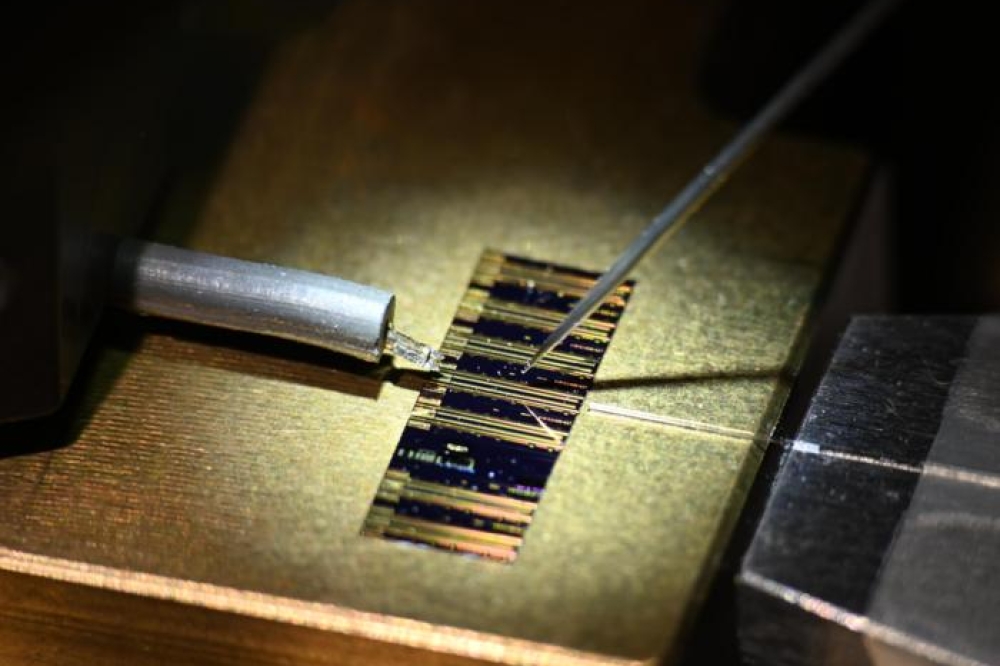News Article
Asahi Kasei to develop III-V devices with Aixtron system
Apart from arsenide and phosphide optoelectronic device development, the Japanese firm will improve its antimonide-based magnetic sensors
Asahi Kasei has ordered an Aixtron 6 x 2-inch MOCVD system to develop its next generation arsenide-phosphide-based optoelectronic devices and antimonide-based sensor devices.
The order for the Close Coupled Showerhead (CCS), was placed in the first quarter and delivery is due in the fourth quarter of 2012.
The Aixtron system will be initially used for R&D purposes and can be used to grow on small and large wafers. CCS-based processes can also be easily scaled-up later for volume production.
What's more, the CCS concept also allows high yields with larger area devices. Asahi Kasei has also ordered special features for its system including an EpiTT, an ARGUS multi-channel pyrometer, and Gap Adjustment.
Through its subsidiary, Asahi Kasei Microdevices Corporation, Asahi Kasei has been developing antimonide-based magnetic sensors for some time, based on the Hall Effect. Antimonide-based sensors benefit from some unique material properties which result in the highest sensitivity compared with sensors made from other materials.
Asahi Kasei Microdevices Corporation,a fully owned subsidiary of Asahi Kasei, is a manufacturer of Hall elements and Hall Effect ICs. Aixtron says it has more than 75 percent share in this market.
The main applications of Hall elements are brushless motors used in Blu-ray/DVD drives, cooling fans for electrical equipment, current sensors for home appliances and position detection sensors used in image stabiliser systems of digital still and video cameras.
Hall Effect ICs are also widely used in position and rotation detection for mobile phones, motors, industrial and automotive equipment.
The order for the Close Coupled Showerhead (CCS), was placed in the first quarter and delivery is due in the fourth quarter of 2012.
The Aixtron system will be initially used for R&D purposes and can be used to grow on small and large wafers. CCS-based processes can also be easily scaled-up later for volume production.
What's more, the CCS concept also allows high yields with larger area devices. Asahi Kasei has also ordered special features for its system including an EpiTT, an ARGUS multi-channel pyrometer, and Gap Adjustment.
Through its subsidiary, Asahi Kasei Microdevices Corporation, Asahi Kasei has been developing antimonide-based magnetic sensors for some time, based on the Hall Effect. Antimonide-based sensors benefit from some unique material properties which result in the highest sensitivity compared with sensors made from other materials.
Asahi Kasei Microdevices Corporation,a fully owned subsidiary of Asahi Kasei, is a manufacturer of Hall elements and Hall Effect ICs. Aixtron says it has more than 75 percent share in this market.
The main applications of Hall elements are brushless motors used in Blu-ray/DVD drives, cooling fans for electrical equipment, current sensors for home appliances and position detection sensors used in image stabiliser systems of digital still and video cameras.
Hall Effect ICs are also widely used in position and rotation detection for mobile phones, motors, industrial and automotive equipment.































